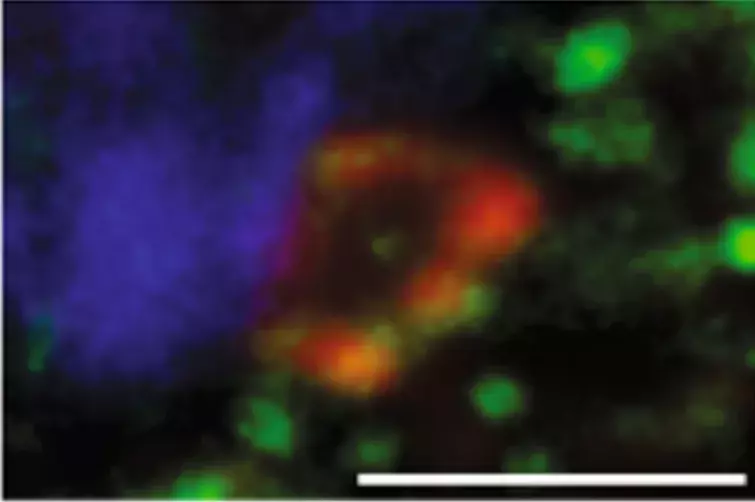Published on 18.05.2020
Dendritic cells (DCs) are a specialized population of immune cells, often referred to as the sentinels of the body. They patrol the body in search of an intruder - a virus, a bacterium, or even a self-cell that has become dangerous," explains Gaël Ménashé, co-director of the Molecular Basis of altered Immune Homeostasis Lab. Once an intruder is detected, they signal its presence to other cells in the immune system in order to launch a targeted attack against it, and to teach the cells to recognize it in the event of further attacks.
How do they work?
These cells will ingest all or part of the intruder, extract a significant fragment of it, prepare it and then carry this antigen - since that is its name - at their membrane level. Equipped with this standard bearer, they then go to meet other cells of the immune system to show them the enemy to be destroyed. "The dendritic cells will present the antigen via the molecules of the major histocompatibility complex (MHC) class I to a family of cytotoxic lymphocytes, the CD8 + T cells, which will initiate the response against pathogens and tumors," says the researcher.
From its entry into the dendritic cell to its attachment at the membrane level within the major histocompatibility complex, the "intruder" must make a whole journey within the cell before it can be presented by the MHC on its surface: it is first degraded within the proteosome and then reduced to small fragments in the endoplasmic reticulum, then to be associated with some of the MHC proteins. The MHC then leaves this cell compartment, passes through the Golgi apparatus and is then fused to a transporter, the endosome, which will allow it to be positioned on the cell surface. As MHC carriers, the dendritic cells can perform their warning function and tell the killer cells who to act on.
When Kinesin-1 is missing, the anti-tumor response is compromised...
This cross presentation of the MHC therefore depends essentially on the traffic between the different compartments of the cell," says Fernando Sepulveda, co-director of the Molecular Basis of altered Immune Homeostasis lab. However, the molecular machinery that regulates this transport is incompletely understood." Their laboratory therefore wanted to find out who the key players in this cellular traffic, which is essential for the proper functioning of the immune system, are. They have just shown that mouse models lacking a protein called kinesin-1 in their dendritic cells present a major deficiency in the cross presentation of antigen and consequently a weak anti-tumor response in vivo.
This result perfectly corroborates the importance of intracellular trafficking for the preparation and presentation of the antigen since kinesin is a protein which, using the cell's energy, ATP, transports large objects through the cytoplasm. It is a kind of molecular engine.
"We also found that kinesin-1 regulates the maturation of the endosomes responsible for bringing the MHC to the membrane of dendritic cells," says Gaël Ménashé.
Kinesin-1 therefore plays a key role in the traffic and maturation of endosome essential to cross presentation of antigen. It can therefore be considered as a potential target for modulating this cross presentation and amplifying immune responses.


